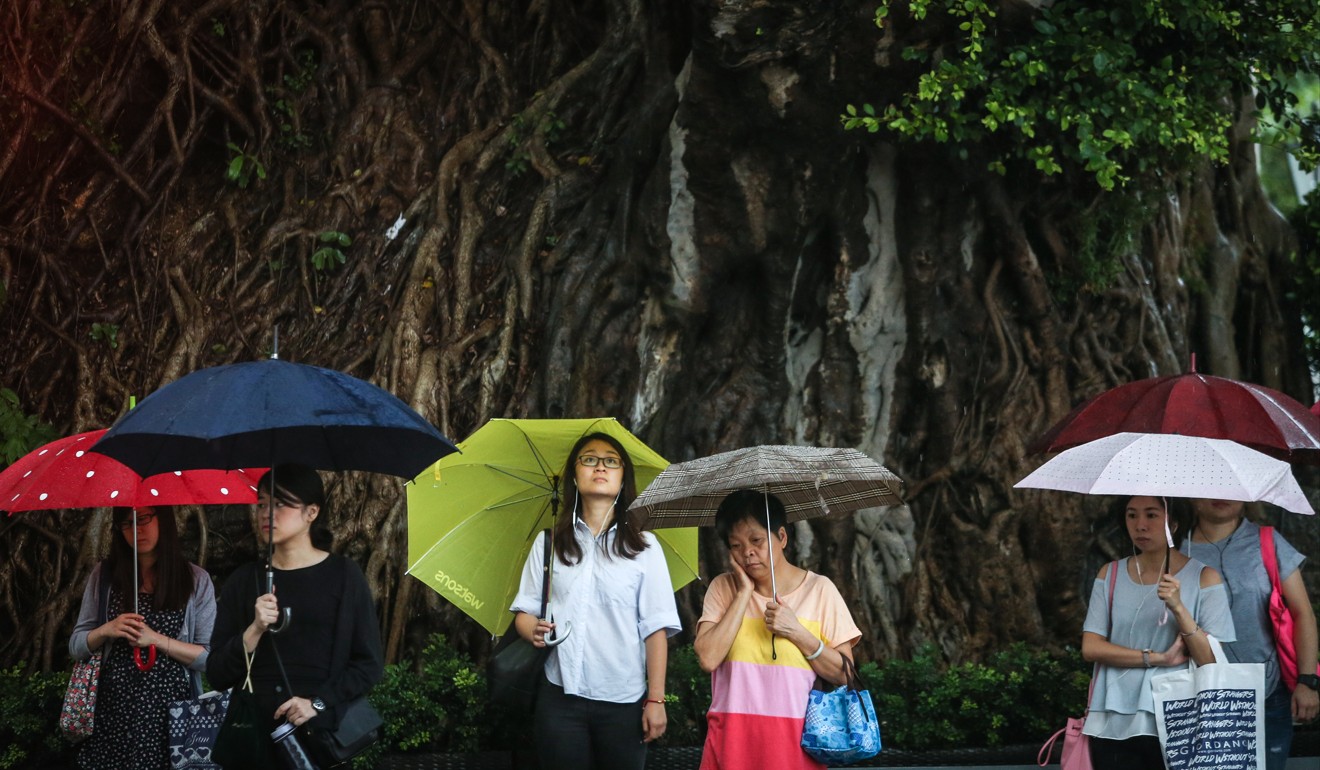
How weather affects your mental health – the science behind the changing seasons and your mood swings
- Has the weather got you down? Science can explain why, especially when it comes to getting the winter blues
- On a grey day, your body produces less of the happy hormone
Are you a summer person, or do you prefer the invigorating chill of winter? No matter the temperature outside, we all react differently to the weather.
Psychologist David Watson is a keen observer of such reactions. “In modern society, many people do not spend a lot of time outside, which reduces the potential influence of weather on their mood; however, different people actually prefer different types of weather,” says the professor, who is co-director of the Centre for Advanced Measurement of Personality and Psychopathology at the University of Notre Dame in the US state of Indiana. “Some like it hotter, others cooler; some like it dry, others more wet and humid.”
Time to break out the winter coats, there’s a cold snap coming
No matter your preference, research shows that the wintry months – and the extended hours of darkness that often come with them – can have an effect on your mental health in the form of seasonal affective disorder (SAD).
Despite its symptoms having being mentioned in scientific literature in 1845, SAD didn’t acquire a clinical name until the early 1980s. According to the American Academy of Family Physicians, about five per cent of the US population experiences SAD each year, with their symptoms lasting for about five months of the year.

SAD is believed to be connected to the body’s circadian rhythm – our waking and sleeping routine, which is almost entirely controlled by light and darkness. Weeks of overcast skies can mess with this, and consequently affect our mental health by tipping the delicate chemical balance in the brain.
Limited bright sunlight means the brain isn’t sure when to get up and continues to produce low levels of melatonin, our sleep hormone, even during daytime hours. On overcast days, the brain also produces less serotonin, our happy hormone – too little and we may feel blue.
Norman Rosenthal, the man who lead the team that coined the phrase SAD in the 1980s, advocates light therapy as a treatment. It involves facing a “light box” panel for 30 to 60 minutes a day throughout autumn and winter. It’s described as a simple treatment that can be delivered at home.

On overcast days, we don’t just miss out on sunshine but on the vitamin D dose that comes with it. Vitamin D is important for much more than just strong bones; a deficiency is associated with cardiovascular disease, type 2 diabetes and cancer risk and progression. Doctors increasingly like to know a person’s vitamin D levels not just for skeleton health, but for overall health and immunity.
Additionally, and significantly in the case of SAD, vitamin D helps to regulate brain function and behaviour, including helping to balance the production of serotonin. The US-based Vitamin D Council recommends healthy adults take a daily supplement of 50 micrograms of vitamin D.
Professor Marshall Burke and his team at the Department of Earth System Science at Stanford University in the United States have done studies that suggest that mental health can also decline as temperatures increase. Using decades worth of data from the US and Mexico, the team found that suicide rates rise 0.7 per cent in US counties and 2.1 per cent in Mexican municipalities for a one degree Celsius increase in monthly average temperature.

“People’s [weather] preferences are influenced by variations in their lifestyle and behaviour,” says Watson. “My preferred weather pattern is different when I am exercising outside versus sitting and watching a sports event inside.”
Yangyang Chen, an associate professor in Hong Kong Polytechnic University’s School of Accounting and Finance, agrees that sunshine can have a significant impact on mental health.
His recent research demonstrated that patent inventors are more productive during periods of higher sunshine exposure, “with this effect having significant implications for a firm’s overall level of innovative productivity”.
Record May heat just the start, Observatory says
He says recent studies have found that weather-dependent mood has economic implications in a number of financial and accounting settings. “Stock market investors are more pessimistic during cloudy days, which leads to lower stock returns, while financial officers are more likely to approve credit applications during sunny days.
“Conversely, equity analysts are less responsive to the release of earnings news when they are in a bad mood induced by lack of sunshine exposure.”
“Sunshine influences the human mood. On sunny days, serotonin levels are higher than on dark, wintry ones. Serotonin is a neurotransmitter that is associated with happiness and elevated emotional states,” says Chen. “Less sun means less serotonin and more melatonin, the hormone associated with depression, sleepiness, and fatigue. Melatonin alters mood state similar to drugs with sedative-like properties.

SAD, as a diagnosis, is more common in high-latitude countries such as Russia, Canada and northern Europe. Because Hong Kong is at a low latitude, Chen says, “there is not much of a difference between sunlight [hours] in summer and winter.” While he does not worry about SAD prevalence in Hong Kong, he does note that “the city has a lot of rainy and cloudy days”.
“Since a lack of sunshine exposure results in a bad mood, people are more likely to be unhappy during days with bad weather. The unhappiness during these days may result in – for example – pessimism towards life and work, inefficiency at work and conservatism.
Mental health in Hong Kong at worst level in seven years, survey finds
“Therefore, people may want to avoid these days if they want to organise activities that require participants to be in a good mood, such as during a marketing campaign or celebration,” says Chen.

